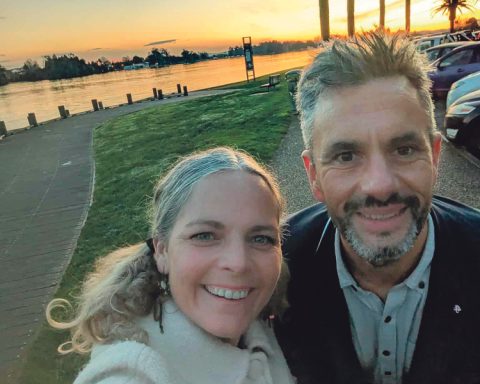For how small Raglan is, there’s been an absolute bucket load of new houses being built over the last few years and that will continue for years to come largely thanks to the Rangitahi development.
Having both built homes ourselves and having assisted hundreds of families build homes over the years, Brendan and I know that building your own home is one of the most rewarding milestones you can achieve. It can also be one of the most stressful times of your life – we’ve seen plenty of people at their wits end wondering why they ever decided to build.
When building a house, if the foundations aren’t right the rest of the project is in trouble. It’s the same with the finance – if the money’s not sorted properly before the build contract is signed, then you’re in for a fraught and stressful process.
Here are our top tips to make your build go smoothly:
1. Do your home work on your builder. Speak to several people that have recently completed builds with them – are they happy with the end result and how was the process? Ask if you can visit the homes to check the quality of work. Talk to people in the construction industry to make sure they’re paying their suppliers etc.
2. Get a build finance ‘pre-approval’ before going too far with your design/house plans. We’ve seen plenty of people who have spent a lot of time and money on house plans only to find out they can’t borrow enough to build their design. A pre-approval lets you know your budget and you can then design within that critical constraint.
3. Be very clear on any items that are excluded from your build contract. Asking your builder to put in writing a list of any exclusions can avoid some very awkward conversations and expensive overruns that you weren’t prepared for.
4. If considering a franchised ‘group home builder’, they often have in-house designers who will design the home at no charge. Whilst this cost saving can sound tempting, if you’re not able to get the design priced by outside builders you may get locked into the one builder and end up paying more in the end.
5. Don’t scrimp on the things you can’t change later, such as joinery etc. Get those unchangeable things right and save money on cheaper kitchens, bathrooms etc. that you can update down the track when finances allow.
6. Don’t sign the contract with the builder until your bank is 100% happy with everything. There’s quite a process to go through before signing the contract – you need to ensure the bank is happy with the specifications, inclusions & exclusions, provisional sums (estimates for some items of the build), drawdown schedule, etc. Once they’re happy with those, the bank will most likely want a Registered Valuer to visit the property with the plans, specs and contract and do an ‘as is’ and ‘when completed’ valuation. When this is then also signed off by the bank you can then sign the build contract (note we recommend you have your Lawyer review any contracts before signing.)
Doing the above will minimise the potential for things going wrong, but don’t think there won’t be any problems. Building a house is a large and complex project and there will be issues to deal with along the way. Be flexible and open to compromises but also stand your ground on the things that really matter. Go for it; moving in day will be one of the best moments of your life!
Mortgage advisor Brett Wood. Contact Brett on 021 886 444 email brett.wood@loanmarket.co.nz











